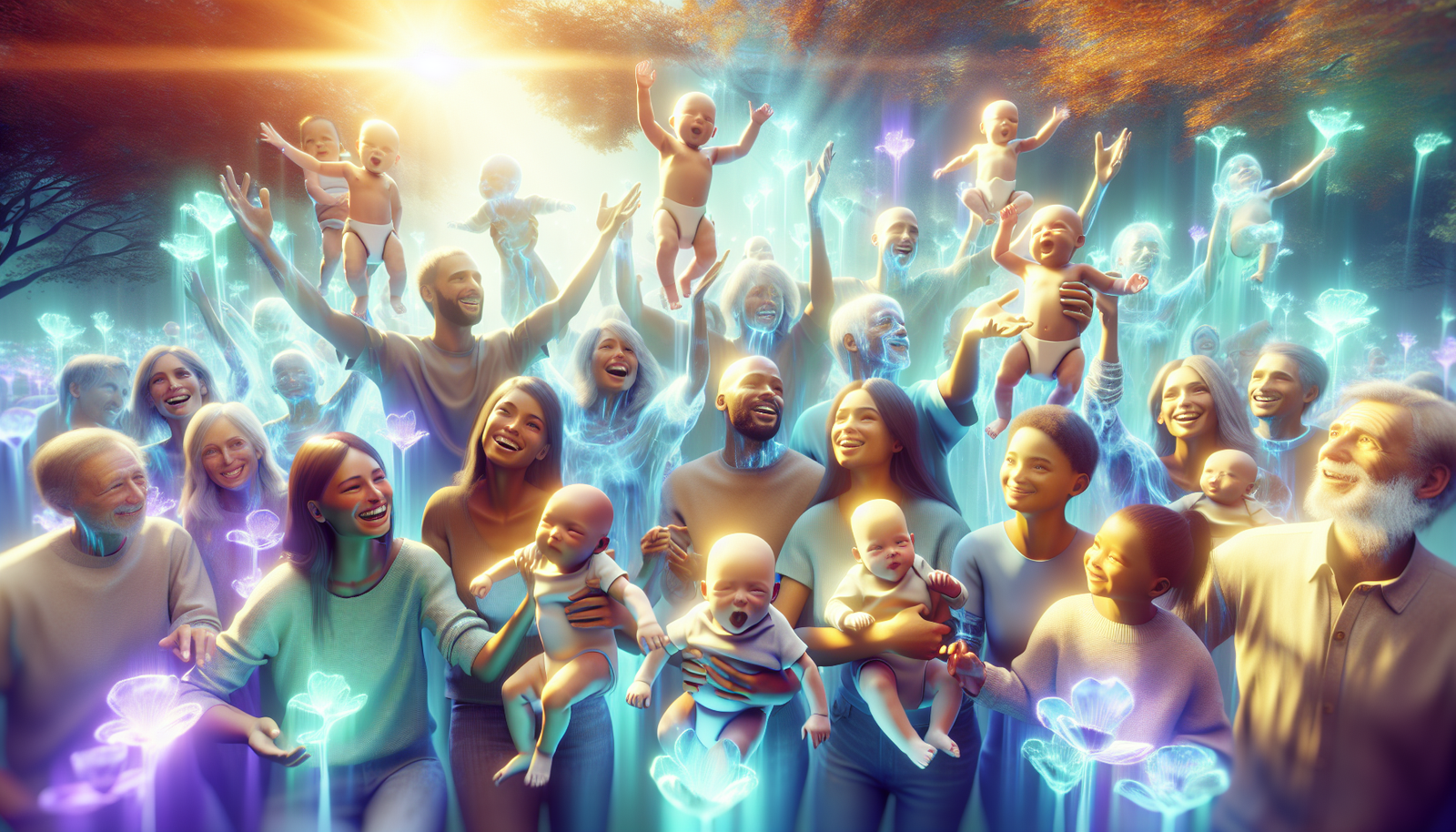Starting from January 1, 2025, a new demographic era emerges with the birth of babies from Generation Beta. Countless social and technological transformations are on the horizon, heralding a world deeply connected to artificial intelligence. The children of this generation will face unprecedented challenges, particularly regarding climate and societal issues that will redefine their daily lives. Their parents, coming from the Millennials and Generation Z, inherently industrial, will instill in them values of collaboration and eco-responsibility, thereby shaping more engaged individuals. As witnesses and actors in a constantly changing reality, these Beta babies lay the foundations for a future connected society with mysterious and fascinating implications.
The contours of Generation Beta
Children born from this new generation, starting from January 1st, 2025, enter a radically transformed societal context. Labeled as the “Beta generation,” this demographic cohort stands out for its early immersion in an omnipresent digital reality. Raised in an environment where artificial intelligence becomes an integral part of daily life, these young individuals will be the pioneers of technological innovation that will shape their existence.
A world shaped by artificial intelligence
The interactions between humans and machines will evolve from the infancy of these newborns. The rapid advancements in AI promise unprecedented learning and socialization experiences. Mark McCrindle, a demographic expert, emphasizes that these children will experience the joys of autonomous transport, connected health tools, and immersive digital environments. These realities will, in turn, shape their values and perceptions of the world.
Environmental consciousness
In the face of environmental challenges exacerbated by climate change, Generation Beta will inherit a world in crisis. This heightened awareness of climate issues will influence their education and values. Generation Beta will anticipate the devastating effects of climate change, positioning ethics and sustainability at the heart of their future choices.
An education focused on innovation
The parents of this generation, coming from Millennials and Gen Z, will prioritize a learning approach centered on innovation. Their children will benefit from modern tools and diverse pedagogical approaches that will integrate societal issues. Awareness of issues such as equality and eco-responsibility will dominate their education.
Values of collaboration and community
The Beta generation babies will exit their childhood with a strong collaborative ethos. The education they receive will inspire them to cultivate a spirit of community and mutual aid. In relation to their elders, this new generation will become more open and increasingly concerned with improving the world around them.
The impact on future policies
The political dynamics will inevitably be influenced by the concerns of Generation Beta. The children of 2025 will grow up in continuity with leaders from Generation Z, keen to address climate emergencies. When their voting powers manifest, more responsible and proactive policies will emerge, reflecting their aspirations.
Conclusion on the paradigm shift
Generation Beta will initiate a bold new era, in which the interconnection between social organization and the digital sphere will be stronger than ever. Their issues and challenges will embody the stakes of a world in full transformation. Debates and reflections on technological and environmental impacts will become commonplace, thus shaping the future of society.
Frequently asked questions about Generation Beta
What is Generation Beta, and when does it start?
Generation Beta refers to children born from January 1, 2025, continuing until 2039. It represents a new demographic era following Generation Alpha and Z.
What are the main challenges that Generation Beta will face?
Generation Beta will confront issues such as climate change, the advancement of technologies, and the integration of artificial intelligence into daily life.
How will the education of Generation Beta children differ from that of previous generations?
The children of Generation Beta will benefit from an education focused on innovation, collaboration, and awareness of environmental issues, due to the influence of their Millennial and Gen Z parents.
What impact will artificial intelligence have on the daily lives of Generation Beta?
Generation Beta will live in a world where artificial intelligence is omnipresent, influencing various aspects of their lives, including education, workplaces, and leisure activities.
Will Generation Beta be more socially engaged than previous generations?
According to experts, the children of Generation Beta will be more open to the world and more engaged with social and community issues due to their education focused on equality and eco-consciousness.
What percentage of the world’s population will Generation Beta constitute by 2035?
Generation Beta is expected to represent about 16% of the world’s population by 2035, highlighting its demographic and societal importance.
What types of emerging technologies is Generation Beta likely to adopt?
Children of Generation Beta will likely be the first to adopt technologies such as autonomous transport, wearable health devices, and immersive virtual environments.
How will Generation Beta perceive climate issues compared to previous generations?
Generation Beta is expected to be more aware of the threats related to climate change, which will influence their political decisions and the actions they will take in the future.






